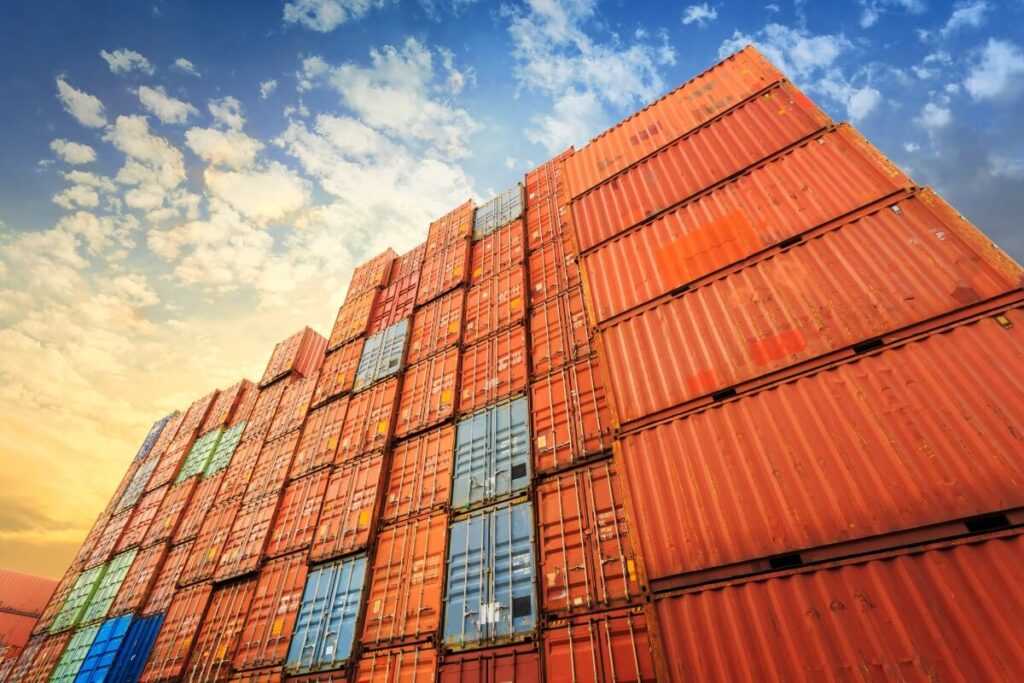When you are involved in international trade as a buyer, it is essential to choose the right Incoterms. Incoterms (short for International Commercial Terms) are standardized rules that define the obligations of buyers and sellers in international transactions. These delivery terms determine who is responsible for payment of charges, insurance and transportation of the goods. Incoterms also divide the risk of loss or damage to the goods in transit between buyer and seller.
Several factors come into play when choosing the right Incoterms, including the nature of the goods, the form of transport (e.g., waterborne or multimodal transport) and the agreements between buyer and seller. Clear agreements about who bears what costs and risks is important to avoid unexpected costs, delays and misunderstandings. In many cases, Incoterms are an essential part of an international trade transaction. They contribute to efficient delivery of goods to their destination.
Responsibilities and risks
Properly understanding the obligations of both the buyer and seller is crucial in choosing the right Incoterms. Different Incoterms entail different responsibilities. Under the Incoterm CIF (Cost, Insurance and Freight), the seller is responsible for the cost and insurance up to the destination, but the risk already passes to the buyer as soon as the goods are loaded aboard the vessel. In contrast, with the Incoterm EXW (Ex Works), the buyer is responsible for virtually all costs and risks from the time the goods leave the seller’s factory or warehouse.

FREE WHITE PAPER
Reduce Total Cost of Ownership (TCO) with the Kraljic Matrix
Different types of transportation
The Incoterms chosen must also match the type of transportation used. For water transport there are Incoterms such as FOB (Free on Board) and CFR (Cost and Freight), which are ideally suited for sea transport. At CIF, the seller responsible for costs and insurance until the goods reach the port of destination, but the buyer bears the risk once the goods are on board of the vessel.
For multimodal transport, where multiple forms of transportation are combined, other Incoterms, such as CIP (Carriage and Insurance Paid To) and CPT (Carriage Paid To) are sometimes more effective, because they extend the responsibility for transportation and insurance to a specific location in the country of destination capture. With DDP (Delivered Duty Paid), the seller responsible for all costs up to the delivery of the goods at the exact location of the buyer, including import dutyand local costand. This offers the buyer the advantage of a fixed cost without unexpected surprises. The Incoterm DAP (Delivered At Place) means that the seller is responsible is responsible for transporting the goods to a specific location, while the buyer is responsible is responsible for import duties and further local costsand.
Clear agreements and communication
Clear communication between buyer and seller is always essential. Incomplete or incorrect information can lead to high additional costs and delays. Using Incoterms helps streamline this communication by providing standardized terms and clear agreements.
Changes to Incoterms.
It is important to be familiar with the latest version of Incoterms, as they are periodically updated by the International Chamber of Commerce (ICC). In the latest version, Incoterms 2020, a number of important changes have been made. Purchasers and supply chain specialists should always make sure they are using the latest version.

Free whitepaper
Project Procurement in the Machine Building Sector
Difference between a smooth transaction and a logistical nightmare
Choosing the right Incoterms can mean the difference between a smooth transaction and a logistical nightmare. Below we discuss the key factors to consider when selecting the right Incoterms for an international trade transaction.
Practical example of Incoterms
Let’s take a practical example of the impact of different Incoterms. Suppose you want to import a shipment of goods from China to the Netherlands. When using the Incoterm DDP (Delivered Duty Paid), the seller is responsible for all costs and risks until final delivery to your warehouse, including import duties and local taxes. As a result, you know exactly what the cost will be in advance. DDP does impose a heavy responsibility on the seller.
On the other hand, if you were to choose the Incoterm FCA (Free Carrier), the seller is responsible for delivering the goods to a carrier designated by the buyer at a specified location, after which all further costs and risks are borne by the buyer. This can benefit buyers who want more control over the transportation process and associated costs.
Regardless of the Inco term chosen, incomplete or incorrect information can lead to delays and additional costs. So make sure both parties have a good understanding of what the chosen Incoterm is all about. This helps ensure efficient and trouble-free delivery of goods and avoids legal disputes due to misunderstandings or poor communication.
Xentys: the specialist in procurement expertise
At Xentys, we understand the complexity and important role of Incoterms in international trade like no other. We have been specializing in recruitment for procurement and supply chain positions in industry, offshore and construction since 2010. We have in-depth knowledge and experience in these disciplines and the relevant labor markets, working for major clients.
Therefore, with us you will always find interesting vacancies with salaries of EUR 60,000 plus. There are sometimes 5-10 new positions added per month, and some of them are not found on a job board. We are constantly seeking talented professionals for our job openings and for inclusion in our database of procurement and supply chain professionals. Through Xentys, you will find great opportunities to further develop your skills and make a valuable contribution in great companies. If you have become curious after reading this article, please check our jobs page or contact us. We would love to hear from you!
Find a buyer through xentys
At xentys, your experienced procurement recruitment agency, we are happy to help you find the right professional for your procurement team. Send a message today and strengthen your purchasing department.






